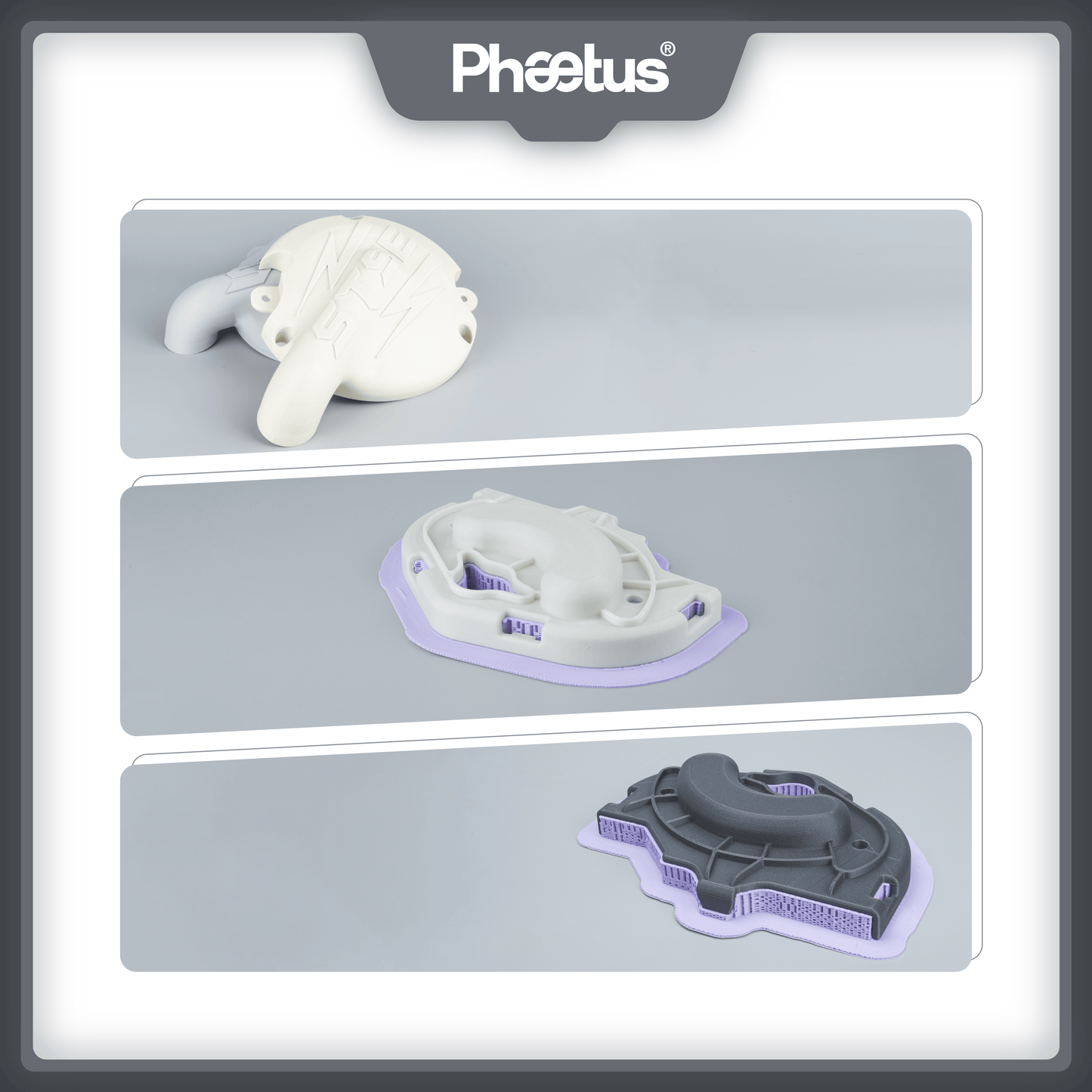






-
9
Hardness (Mohs)
-
550℃
Maximum Printing Temperature
-
130W/m·k
Thermal Conductivity
-
4.5μm/m·℃
Expansion Coefficient
Adaptation Models
RepRap M6 | 175/300:0.25mm/0.4mm/0.6mm/0.8mm
MK8 | 175/300:0.25mm/0.4mm/0.6mm/0.8mm
MK10 | 175:0.25mm/0.4mm/0.6mm/0.8mm
MK10 PTFE | 175/300:0.25mm/0.4mm/0.6mm/0.8mm
RepRap M6 Plus | 175/300:0.25mm/0.4mm/0.6mm/0.8mm
Performance Analysis
Super Wear-Resistance | Using the world’s leading ultra-high hardness tungsten carbide (hardness > 2700Hv (up to 2900Hv)), super wear resistance ensures long-term printing without wearness of nozzle hole and tip flat.
High Temperature Performance | Composed of tungsten carbide and copper alloy with super hardness and excellent conductivity, maximum printing temperature can be 550℃.
Low Pushing Force | Tungsten Carbide Nozzle with high purity more than 99.98% and high thermal performance keeps an even temperature of nozzle tip during printing, thus guaranteeing a stable extrusion.
Faster Speed | Due to the high thermal performance of the nozzle in general, the printing speed can be pushed even further without sacrificing the quality. Unique passageway in the nozzle improves the flow rate at the inner hole faster.
Low Friction | The whole nozzle is applied with DLC coating . Surface friction coefficient is as low as 0.05 which makes the nozzle with clean printing, without plastic sticking to it.
DLC coating
Friction coefficient is only 0.05, effectively avoiding molten plastic sticking to the nozzle;
Coating thickness 2.0μm, without effects on any dimension accuracy;
Maintaining good lubrication and wear-resistance up to 300℃;
Strong adsorption capacity, coating hardness HV2200;
Stable chemical properties, non-toxic, non-corrosive and insoluble in other solvents.
Applicable Filament
One Nozzle , All Materials
From conventional printing with PLA to PEEK, even to Carbon Fiber reinforced materials, Tungsten Carbide Nozzle can easily handle with long time printing with any material.
Product Features
-
φ0.2
Min. Orifice Diameter
-
±0.01mm
Tolerance
-
≤Ra0.2μm
Inner Hole Roughness
-
≤0.02mm
Concentricity
FAQ
Q: What is the best way to clean the nozzle if there are deposits on the inside?
A: Conventional method: heat the nozzle and pass the needle. If available, the nozzle can be cleaned by immersing it in acetone solvent.








